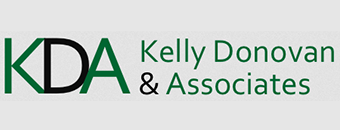When you’re in the job market and the phone rings, it’s impossible not to wonder if it’s a recruiter or employer–especially if the area code matches an employer you’re interested in.
Answering the phone right away would seem to be the best option, but not so fast!
What could go wrong?
Noise and distractions
Take stock of the situation. Are you in the car? In a noisy public place? Outdoors on a windy day? Any of these environments are NOT optimal for a cell phone conversation. Reception might be bad, or there might be too much background noise. Also, you might be distracted.
Even if you’re at home, noise from pets, children, and the TV can be equally problematic.
Not being prepared
Even if you’re in a very quiet place with excellent reception, you also need to be in the right frame of mind for an effective conversation that will convince the recruiter to move you forward in the process.
If it’s not a scheduled phone interview, the call is likely just an initial screening call to see if you might be a fit.
You won’t get a formal interview unless this initial screening goes well.
Potential problems can include:
- You seem confused about the job you applied for. “Can you remind me what job this is again?” That employer (and recruiter) absolutely prefer candidates who are genuinely excited about their opportunity. Their dream would be a candidate who only applied for that job, and hasn’t been applying with any other companies!
- You’re unprepared and discombobulated. You fumble and mumble because you didn’t have a chance to clear your head and refresh your memory on how you’ll answer key questions.
It’s simple: let the call go to voice mail
Listen to the voice mail, and make your way to a quiet place. Collect your thoughts before calling back. Think carefully about key points you want that person to know. In all likelihood they just want to schedule your screening interview, not conduct it on the spot–so plan on that, but be prepared to answer questions on the spot if needed.
If they called in the morning or early afternoon, try to call back the same day if possible. If they called later in the day, the following morning is acceptable.
No matter what, call back, even if you’re not interested in the job. Relationships matter. (And it’s the kind thing to do.)



